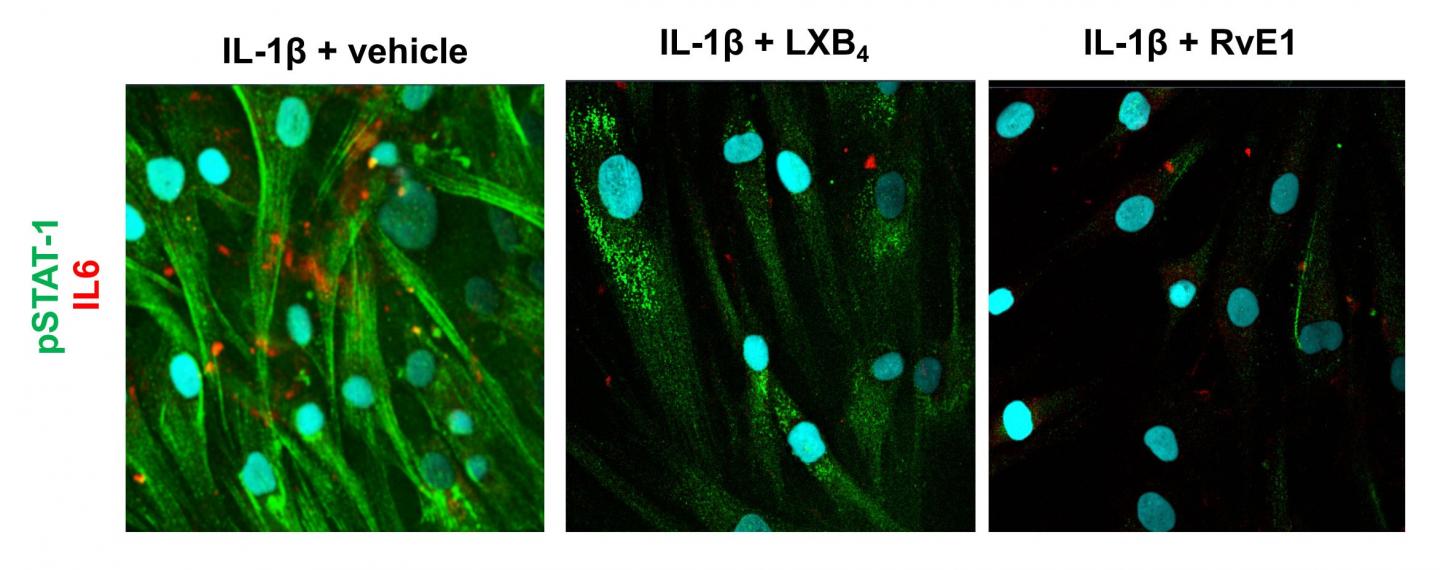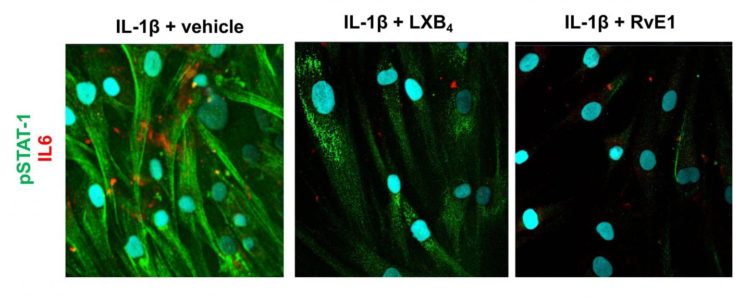Findings reported in The American Journal of Pathology suggest specialized proresolving mediators may become therapeutics that alleviate chronic tendon inflammation

Credit: The American Journal of Pathology
Philadelphia, October 10, 2019 – Tendon tears, both to the rotator cuff and Achilles heel, are common injuries, especially in aged individuals. Painful and disabling, they can adversely impact quality of life. New approaches are required to help patients suffering from chronic tendon injuries. A novel study in The American Journal of Pathology, published by Elsevier, identified mediators that promote resolution of inflammation as potential new therapeutics to push chronically injured tendons down an inflammation-resolving pathway.
“Our study informs new therapeutic approaches that target diseased cells and promote resolution of tendon inflammation, harnessing the body’s own natural responses for therapeutic gain,” explained Stephanie G. Dakin, PhD, BVetMed, Nuffield Department of Orthopaedics, Rheumatology and Musculoskeletal Sciences, Botnar Research Centre, University of Oxford, Nuffield Orthopaedic Centre, Oxford, UK.
The study demonstrates the anti-inflammatory effects of two specialized proresolving mediators (SPMs), lipoxin B4 (LXB4) and Resolvin E1 (RvE1), on cultured tendon cells in which induced shoulder tendon disease was present.
According to Dr. Dakin and colleagues, resident (meaning part of the normal tissue) stromal cells, especially fibroblasts, play a pivotal role in inflammatory diseases of joints. After injury, fibroblasts become activated and show inflammation “memory,” an important event underlying the switch from acute to chronic inflammation. These cells become unable to return to their normal state. The SPMs identified by the researchers interfere with this chronic inflammatory process and help fibroblasts resolve tendon inflammation; hence the name “proresolving” mediators.
Commenting on the study, Undurti N Das, MD, DSc, UND Life Sciences, Battle Ground, WA, USA, and BioScience Research Centre and Department of Medicine, GVP Medical College and Hospital, Visakhapatnam, India, emphasized that understanding the crosstalk among resident stromal cells including fibroblasts that not only participate in inflammatory diseases of the joint, but also in the switch from acute to chronic inflammation, tissue resident and infiltrating macrophages, infiltrating immune cells, and endothelial cells is important to the disease process and for the development of newer therapeutic interventions.
“In this context, the report by Dakin et al is of substantial interest to the field. It establishes that tendon stromal cells isolated from patients with tendon tears show pro-inflammatory phenotype and secrete significantly higher amounts of interleukin (IL)-6 with dysregulated production and action of lipoxin A4, resolvins, protectins, and maresins compared to normal cells,” added Dr. Das.
“There is a clear unmet clinical need to develop effective new therapeutic approaches to treat tendon disease,” added Dr. Dakin. “SPMs, including LXB4 and RvE1, may target diseased cells and potentiate resolution of chronic tendon inflammation.”
Shoulder pain is the third most common cause of musculoskeletal pain, and tears affecting shoulder rotator cuff tendons comprise a large proportion of this disease burden. Current treatments for tendon injuries include physical therapy, non-steroidal anti-inflammatory drugs, platelet rich plasma, steroid injections, and surgery to repair torn tendons. These therapies are frequently ineffective, steroids are potentially harmful, and tendon tear surgery is associated with high postoperative failure rates. Therefore, alternative therapies targeting the cells driving chronic inflammation are required to help patients, and ideally avoid some of the problems associated with surgery, steroids, NSAIDS, or other interventions.
###
Media Contact
Eileen Leahy
[email protected]
732-238-3628
Related Journal Article
http://dx.





